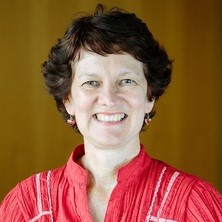by authors Robyn Gulliver and Winnifred R. Louis
July 21, 2021
Webinar Content
Introduction of Speakers: 0:00–3:30
Presentation: 3:31–25:25
Questions and Answers: 25:26–1:02:14
Webinar Description
ICNC hosted Robyn Gulliver and Winnifred Louis to discuss their forthcoming monograph, co-written with Kelly Fielding, Civil Resistance Against Climate Change (tentative title). Civil resistance against climate change burst onto the world stage in 2019 with nonviolent actions by Extinction Rebellion and Fridays for Future generating widespread international media coverage. But nonviolent action against climate change has been taking place in many countries for many decades. What can this past experience tell us about the capacity for nonviolent action to help stop the drivers of climate change? In this webinar the learnings from extensive empirical research on the Australian environmental movement are discussed to help answer this question. Beginning with an overview of the groups which engage in climate change civil resistance and the tactics they use, the presenters then discuss the extent to which this activity is succeeding in achieving its goals. The webinar also includes a discussion of the dynamics and outcomes of one of two case study campaigns (the Stop Adani anti-coal mine campaign), before concluding with consideration of how different levels of the Australian government is responding to climate change related civil resistance.
About the Presenters and Authors
 Robyn Gulliver is a multi-award winning environmentalist, writer, and researcher who has served as an organizer and leader of numerous local and national environmental organizations. Born in New Zealand, she has spent the last decade advocating for and writing about environmental issues for activist groups, local councils, not-for-profit organizations, and academia.
Robyn Gulliver is a multi-award winning environmentalist, writer, and researcher who has served as an organizer and leader of numerous local and national environmental organizations. Born in New Zealand, she has spent the last decade advocating for and writing about environmental issues for activist groups, local councils, not-for-profit organizations, and academia.
 Winnifred R. Louis is a Professor of Psychology at the University of Queensland, Australia. Her research interests focus on the influence of identity and norms on social decision-making. She has studied this broad topic in contexts from political activism to peace psychology to health and the environment.
Winnifred R. Louis is a Professor of Psychology at the University of Queensland, Australia. Her research interests focus on the influence of identity and norms on social decision-making. She has studied this broad topic in contexts from political activism to peace psychology to health and the environment.
 Kelly Fielding is a Professor of Environmental Psychology at the University of Queensland in the School of Communication and Arts. Her research focuses broadly on understanding the social and psychological determinants of environmental sustainability. She seeks to understand environmental decisions and behaviors and to develop communication and behavior change strategies that can promote greater environmental sustainability.
Kelly Fielding is a Professor of Environmental Psychology at the University of Queensland in the School of Communication and Arts. Her research focuses broadly on understanding the social and psychological determinants of environmental sustainability. She seeks to understand environmental decisions and behaviors and to develop communication and behavior change strategies that can promote greater environmental sustainability.
Recommended Readings
“Marginalized Communities Are the Frontline Leaders of 2020’s Environmental Movements” by Michael Wilson Becerril
“Reflection on Civil Resistance and ARRCC” by Jason MacLeod
“When the Bombs Drop, School Stops: Eight Decades of Australian School Strikes and Direct Action” by Iain McIntyre
Thirty Years of Creative Resistance: Friends of the Earth Australia by Cam Walker